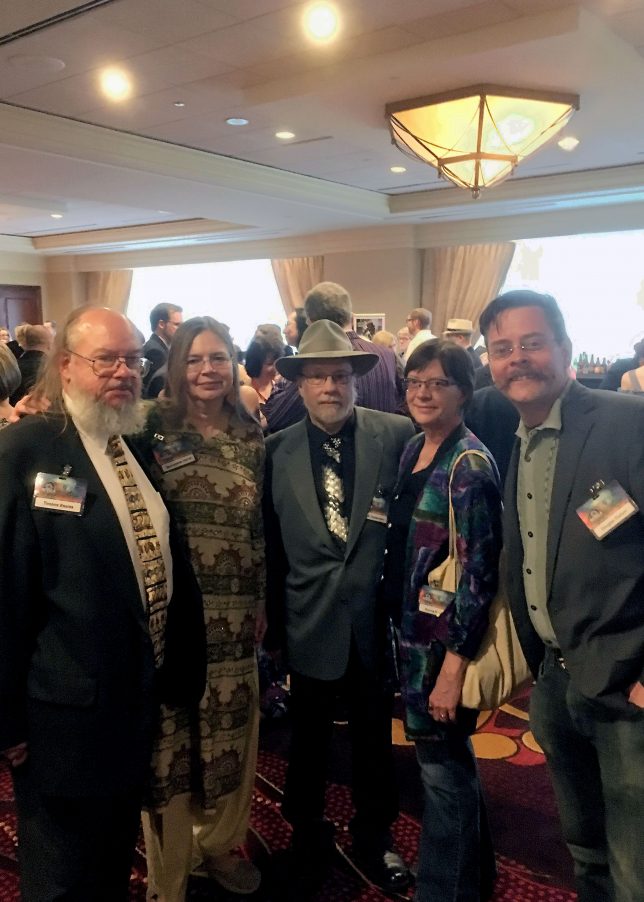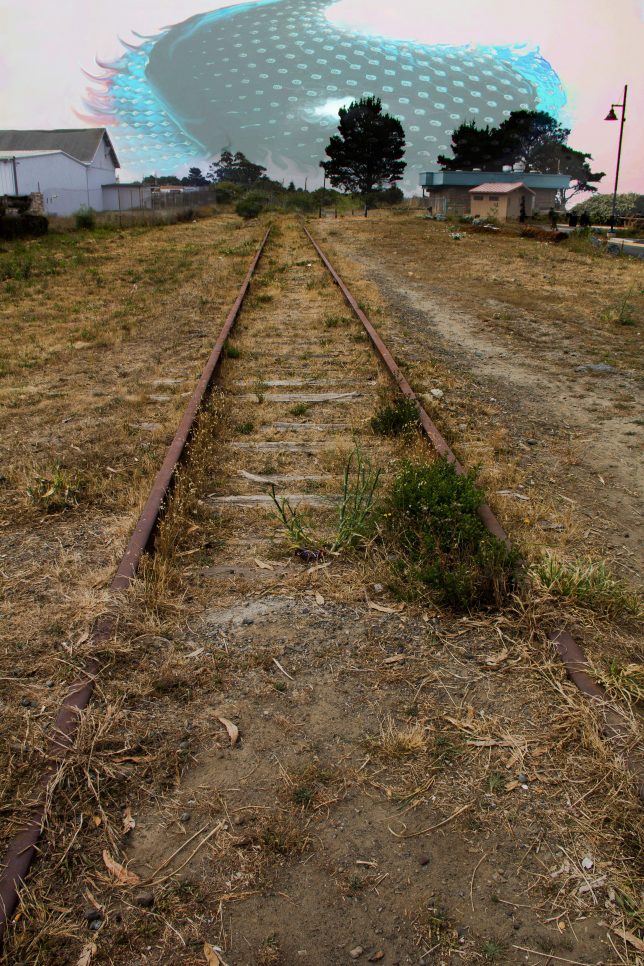Heavy sigh.
Seriously? People are getting exercised over this? I suppose these will be some of the same people who will come out in angry revilement if the next James Bond really is a black man.
There’s a certain space wherein this kind of angst is perfectly acceptable. Private conversations with people who share the same interests and have Opinions about the condition of a favorite bit of entertainment and how it would be if certain changes were made. Three or four of you get together over beers (or floats, depending) and pizza and spend an hour or two reconstructing the whole æsthetic as you would have it. This is good, healthy use of imagination and the application of ratiocination over something that is fun and has no real impact on anything else. The relative merits of various incarnations of the Doctor (or Bond) is a legitimate question within the confines of a small subject relating to art and storytelling and critical appreciation. Same kinds of questions apply when a reboot of an old film or tv show is in the works or when a dead author’s work is licensed out for new books. We flex our gray cells and participate in a way in the creative process. We can draw lessons from such interactions.
But when someone, like a John C. Wright, weighs in to tell us how this is all part of the feminization of civilization at the expense of masculine role models and that civilization itself is at risk because after 12 incarnations of a fictional character who is also an alien being several centuries old the people in charge decided to give a female version a try, and a cadre of spoiled, semi-privileged misanthropes go on a tantrum in agreement, condemning the change and anyone who might like it to the nether regions of Hell…
Get a life.
If you don’t like it, you don’t have to watch it. You can go back and rewatch the umpteen seasons already available (you will anyway, probably). You have several options here. You can even discuss—discuss, as in have conversation, engage discourse, exchange opinions—the merits of it among yourselves or others. What you don’t get to do is tell other people how they’re about to bring on the end of the universe because they like something you don’t.
Really, that’s going just a bit far, don’t you think?
This is the flip side of insisting that everyone must have an opinion about something, even if it’s something of zero interest to them.
We’re talking about art now.
The fact is, there’s room for all opinions, as long as we remember they are just that—opinions.
This is one of the places wherein we learn to play nice with people who disagree with us.
But a lot of people don’t know how to do that anymore. Maybe they never did. But they also never had access to such incredible amplification systems before.
At it’s base, though, this is what a certain kind of privilege looks like. It’s taking a position that what I believe is the absolute Norm and anything that deviates from it is unacceptable. We can’t have a female Doctor Who because it runs counter to the way I want the universe to work, and what is it with these girls anyway, trying to shove their way into something they don’t fit? They have perfectly good heroes of their own that are just as good as mine, so they should leave mine alone!
Sound familiar? If it doesn’t, that may be symptomatic of the problem.
We see this time and again when a group previously thrown a bone by society asks for more respect and society, or the arbiters thereof, look at them like they’re being selfish and demanding something undeserved. In reality, the most vocal opponents have been skirting by on the earned privilege of others for ages, and when according something like equality to a group that has never had it before is presented to them they realize, in their bones, that they just might not be able to compete on a level playing field and everything must be done to convince the world that everything as it has been is meant to be. Because, damn, what if that group turns out to be better than us?
Well, tough. The fact is, fanboy, sitting there on your couch feeling one with the Superbowl Star because you bought the jersey and cheer the team and you are, somehow, the same as that quarterback because you both have testicles, you can’t compete with the standard model you already feel you own. You don’t get to claim superiority because someone else can do all that shit that presumably only males can do.
Or white people.
This is instructive, really. The response to the change came before the first episode aired. Among those screeling anthrophobes so unhinged at the idea that the Doctor no longer has a penis (if “he” ever did, which is an interesting question in itself from a purely science-fictional standpoint, since the Doctor is Gallifreyan and may well have a completely different sexual arrangement) and now has, gasp, a vagina (again a presumption), it is not so much that they ever identified with the Doctor but that, on some level, they possessed identity because of the Doctor.
Here’s where I start to have problems with this whole process. Are you drawing inspiration from the idea of the role model—brains, ability, character traits—or are you hitching a ride on all that by hitching your ego to the one thing you don’t have to do anything to achieve to be “like” the role model? To say “I want to be like that character” is to make a commitment, however small or temporary, to doing some work toward. To say “I am like that character” because you happen to share certain physical similarities is to borrow a sense of self-worth that you haven’t earned.
Now, there’s nothing wrong with that as long as you keep it in perspective. As long as you know that, really, you aren’t anything like that character but might occasionally pretend to be, in your own head, your dreams, or in a bit of cosplay, and you only pay homage because you think that character is cool. Some of the cool might rub off. But that fact is these things change.
How important is it that what may be the least important aspect of a character remain constant and unchangeable just so your shortcomings stay neatly hidden away behind an act of mental pretense?
None of this would rise to a level requiring a response had it not become evident that as role model, The Doctor has failed for these poor, disheartened misogynists. Failed in that the essential message of the Doctor didn’t get through, didn’t translate, didn’t manifest. The whole point of the regeneration, aside from need to explain all the new actors, is that what you are on the inside matters infinitely more than the plumbing. And no gender has exclusive rights to the interior. The Doctor moves from one incarnation to the next, changing, becoming different, yet always bringing along the most important things, which have nothing to do with anatomy. In that way, inadvertently or not, the Doctor has been a role model for people, not boys.
Discussing narrative consistency, the needs of logical drama, the pros and cons of story and character arc choices, all that is one thing, and legitimate. But that’s to do with the interior, because you already have a character who transforms from one person into another as an essential element of the interior. Having already established that and had it accepted as part of the way this thing works, to go off on a tear when the transformation doesn’t conform to your limits is small-minded and disingenuous, especially when you couch your complaints in some variation of requiring a role model for gender identity when that was never an essential aspect of the character in the first place, mainly because it’s an alien.
In other words, the shock is all about you, not the character. Quite possibly there’s always been an attendant fantasy about the Doctor getting it on with the Companions, which now becomes incommensurable with certain neuroses when it might be a female Doctor taking her pick of male companions—or, for the sake of consistency, still doing so with the females. That opens a whole other door of unmanageable unfathomables, I suppose. What, the Doctor not only a woman but a lesbian? Or just bi?
But according to canon, the Doctor never did do that, and we have the fey thread with River Song to even suggest a sexual attachment, and she wasn’t a Companion, and—
Rabbit holes can be fun, certainly, but be careful that they don’t start in your own fundament.
Civilization will not end. The Doctor will survive. As for role models, the Doctor has been serving as one for People since the beginning. This will be just more of the same.
And that is about all I have to say about that.
I’ve got some timey-whimey shit to think about now.
(Oh, the title? How does all this explain everything? Well, think about it. Taking issue with things just to have a snit because you’re uncomfortable…well, look around.)









